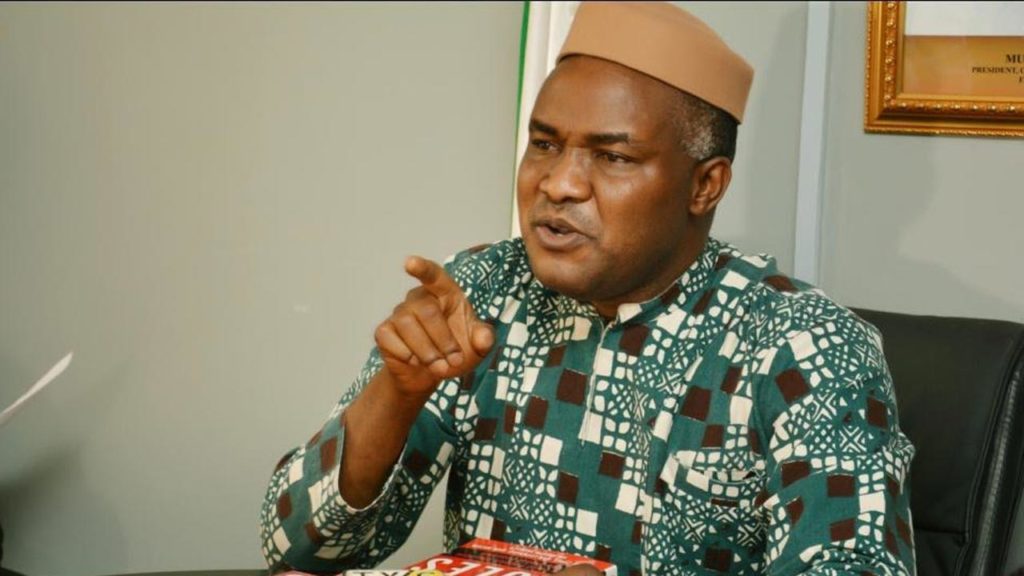By Orbih William.
The word “palliative” is perhaps the most used word in Nigeria today. Before last week, or let us say before COVID 19 pandemic, many Nigerians did not even know that the word existed, talk less of what it meant. Today, it is not that many Nigerians can now define the term.
I am not even sure whether I still can. Instead, it is that palliative has found its way into the Nigerian political consciousness and popular lexicon, and it is destined to stay for a long time. Typical of Nigerians’ fun-loving and critical nature, palliative has already inspired many comedies and scholarly theories.
Someone on Twitter jokingly asked: “Is your partner showing you off? Abi you be palliative?” It has been trending ever since. The sudden discovery of palliatives in warehouses across the country has also raised concerns. Soon, conspiracy theorist shall wade into the matter. I await their creativity.
However, as we await the conspiracists, we must make do with the intelligentsias as they raise some pertinent questions trying to probe into the sudden discovery of warehouses that has become a trend these past days.
They have wondered whether if this is not a ploy by the ruling class to distract the masses from the struggle—especially the unforgivable genocide in Lekki on October 20, 2020? The morality of looting palliatives stashed away in warehouses has also been vigorously debated, and it seems the overwhelming majority are of the opinion that it is both moral as well as logical.
According to most people, the logic involved is as simple as logic can be: “Meant for the poor, carried by the poor.” It is, however, important to also consider the politics of palliative. By this, I mean the social condition that makes palliatives an issue in the first place. This social condition is not just poverty, but what one can describe as the politicization of poverty.
The politicization of poverty refers, first of all, to the massive corruption of government officials that is chiefly responsible for the impoverishment of the majority of Nigerians. Poverty in Nigeria is neither natural nor inevitable. Nigeria is too rich to be poor. “The land is green” as T. Y Bello excellently captured it in her hit single.
According to Chinua Achebe, who describes The Trouble with Nigeria as “simply and squarely the failure of leadership,” “there is nothing wrong with Nigeria’s land or climate or water or air.” Rather, Nigeria is superabundantly blessed by God with natural resources and enviable human resources.
Poverty is not the consequence of unfertile land or unimaginative people. It is the result of a long history of looting, mismanagement, insensitivity, and utter lack of vision and purpose of the ruling class.

Recently, the sheer wickedness of Nigerian leaders has been added to the list. Many of us are still gaping in amazement at how many Nigerians continue to languish and perish, even amidst so much food in warehouses around them.
However, it is one thing for poverty to be widespread. It is another thing for it to be weaponized for political reasons. The politics of palliative in Nigeria can simply be defined as the weaponization of poverty by the Nigerian elites. It is simply disheartening.
This strategy did not begin in the wake of COVID 19; it is a strategy that has always been employed by the Nigerian ruling class to keep the people too poor to rise up for their rights and crushed enough to be willing to settle for dregs.
It has had different names in the past. Once, it was called amala politics, or stomach infrastructure. It was essentially a three-step process. Steal public money. Use the stolen money to buy palliatives. Use the palliatives to buy the people’s votes during elections while posing as a benefactor.
One politician even claimed that he was preparing to distribute the palliatives that were discovered and looted in his warehouse on his birthday. What stupidity and audacity. Safe for the few spates of violence involved and the unfortunate human casualties that have resulted, I think the looting of palliatives stored wickedly in warehouses is not just logical but also a welcome idea.
Not in the sense that I want the looting to continue, but in the sense that I wish that it becomes the first step to the ordinary Nigerian rejecting the evil politics of palliatives. This means rejecting vote-buying. It means realizing that leaders are not benefactors for discharging their constitutional duties; they are public servants only doing what they were elected for and are being paid handsomely to do.
Lastly and most importantly, Nigerians must reject the mindset of poverty that makes us easily susceptible to the politics of palliative. We can take the money while still voting our conscience. Our future and that of our children depend on our voting rightly.
We must also ultimately seek to rise from what Godfrey Nzamujo describes as the logic of poverty. He defines it as the “incapacity to effectively harness the opportunities before us.” Ours is a rich country.
Our land is too green not to be able to feed all of us. Nigerians are good, hardworking, and intelligent people. Resilience should also be added to this list. Nigerians are neither lazy nor clueless. Except that we have been cursed by awfully bad leaders at all levels since independence, we have no reason to be a poor country depending on aid, whether foreign or palliatives.
Disclaimer: “The views/contents expressed in this article are the sole responsibility of Orbih William and do not necessarily reflect those of The World Satellite. The World Satellite will not be responsible or liable for any inaccurate or incorrect statements contained in this article.”





I have to thank you for the efforts you’ve put in writing this blog.
I’m hoping to see the same high-grade content from you later on as well.
In truth, your creative writing abilities has encouraged me to get my own, personal website now 😉